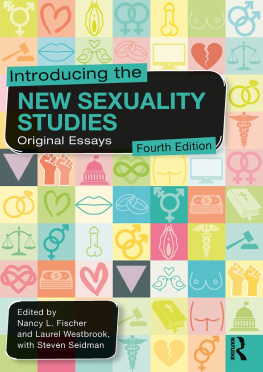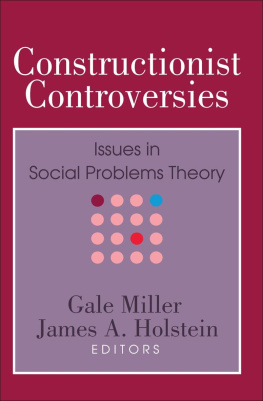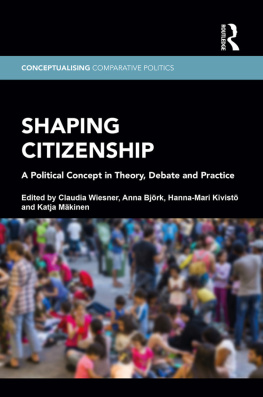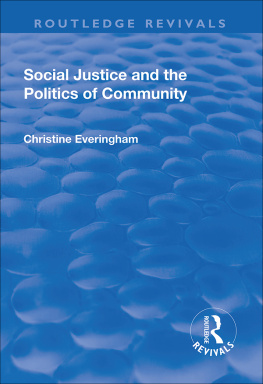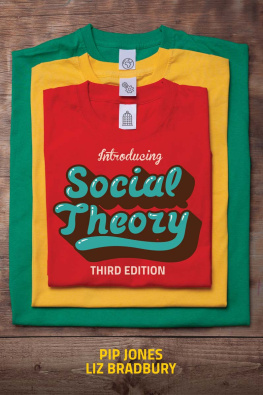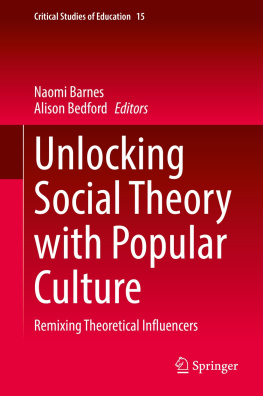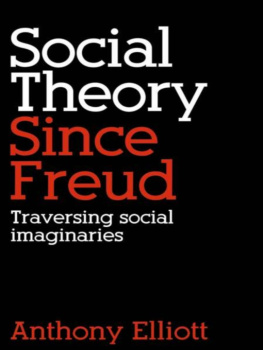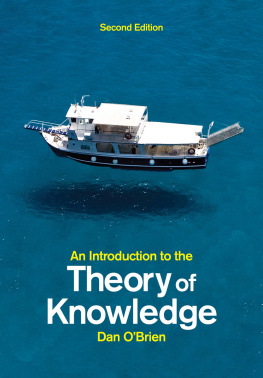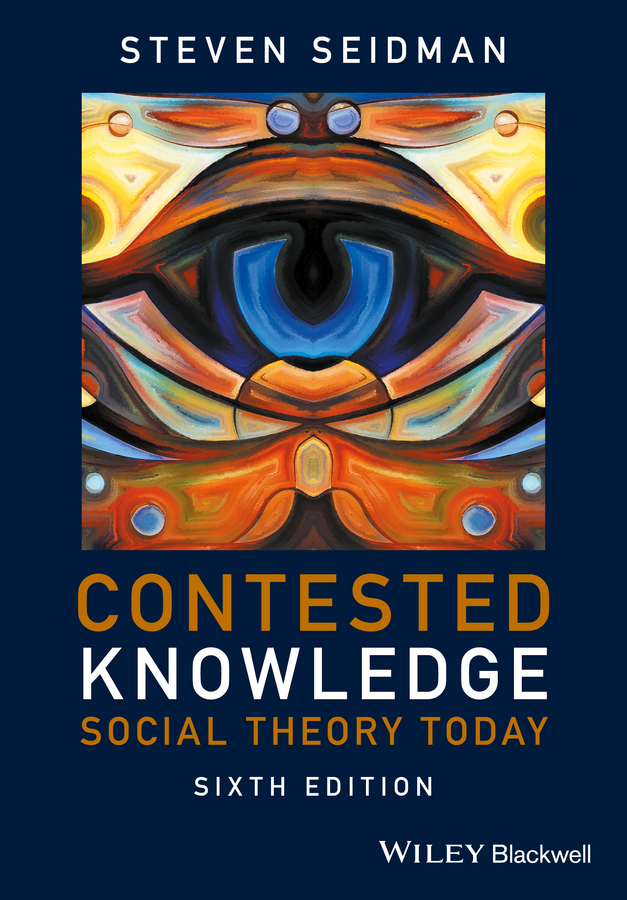
Table of Contents
Guide
Pages
CONTESTED KNOWLEDGE
Social Theory Today
Sixth Edition
Steven Seidman
This edition first published 2017
2017 John Wiley & Sons, Ltd
Edition history: Blackwell Publishing Ltd (1e, 1994, 2e, 1998, 3e, 2003, 4e, 2008, and 5e, 2013)
WileyBlackwell is an imprint of John Wiley & Sons, formed by the merger of Wileys global Scientific, Technical and Medical business with Blackwell Publishing.
Registered Office
John Wiley & Sons, Ltd, The Atrium, Southern Gate, Chichester, West Sussex, PO19 8SQ, UK
Editorial Offices
350 Main Street, Malden, MA 021485020, USA
9600 Garsington Road, Oxford, OX4 2DQ, UK
The Atrium, Southern Gate, Chichester, West Sussex, PO19 8SQ, UK
For details of our global editorial offices, for customer services, and for information about how to apply for permission to reuse the copyright material in this book please see our website at www.wiley.com/wileyblackwell.
The right of Steven Seidman to be identified as the author of this work has been asserted in accordance with the UK Copyright, Designs and Patents Act 1988.
All rights reserved. No part of this publication may be reproduced, stored in a retrieval system, or transmitted, in any form or by any means, electronic, mechanical, photocopying, recording or otherwise, except as permitted by the UK Copyright, Designs and Patents Act 1988, without the prior permission of the publisher.
Wiley also publishes its books in a variety of electronic formats. Some content that appears in print may not be available in electronic books.
Designations used by companies to distinguish their products are often claimed as trademarks. All brand names and product names used in this book are trade names, service marks, trademarks or registered trademarks of their respective owners. The publisher is not associated with any product or vendor mentioned in this book. This publication is designed to provide accurate and authoritative information in regard to the subject matter covered. It is sold on the understanding that the publisher is not engaged in rendering professional services. If professional advice or other expert assistance is required, the services of a competent professional should be sought.
Library of Congress CataloginginPublication data applied for
ISBN: 9781119167587
A catalogue record for this book is available from the British Library.
Preface
I am very much a child of the sixties. I dropped out of college, looked to my body as a source of pleasure and rebellion, and marched to change the world. I imagined the social sphere as a field of enormous possibilities for self and collective renewal. As the sixties deadended in drugs, violence, and either political extremism or liberal accommodation, I followed the hordes of the middle class into graduate school. I looked to sociology as a discipline that would help make sense of my individual and collective world while also contributing to envisioning a different and better future.
I recall the disillusionment of my first few years as a sociologist. I expected my colleagues to share my moral vision of sociology. The reality was sobering. My colleagues, whom I admired for their research skills and their accomplishments, hardly read outside of their specialty areas; few of them deliberately linked their scholarship to public debates and controversies; much of the culture of sociology in the 1980s and 1990s seemed parochial a world where scientific talk and status anxieties produced an insulated expert culture. I was distraught at the wreckage of professionalization: smart, wellintentioned individuals with good values, whose intellect was disciplined by a culture that often ignored history, nonAmerican and nonWestern cultures, and that lacked strong ties to a public world of moral and political debate.
I rebelled. I turned to the roots of modern social thought in order to call sociology to task for abandoning its moral promise. In the 1980s, I undertook a study of the Enlightenment origins of European social theory. The passion that previously went into personal and social rebellion was now channeled into a quest to reform sociology. I hoped to find in the original inspiration of modern social theory a warrant for approaching sociology as having a moral and political purpose. I found what I was looking for: the philosophes and the classics viewed social analysis as a vehicle of social critique and change.
As the memories of the 1960s faded, my own writings became obscure. In the apolitical spirit of America in the 1980s, I was absorbing the disciplinary culture of sociology. I started thinking of myself as a theorist, as if theory had its own problems and value apart from social analysis and critique. I was losing myself in theory discussions. My work was starting to feel sterile and pointless. I felt alienated from my original moral and political motives for becoming a sociologist.
The AIDS crisis jolted me. It was 1981. I remember reading of the mysterious disease that was taking the lives of gay men. I recall the media hysteria, the homophobic public response, and the governmental neglect. I was living in New Mexico trying to finish a book on the classical social theorists. As I was preoccupied with Marxs Capital or Durkheims Suicide, the fatalities from AIDS seemed to be growing exponentially. The AIDS epidemic fed into a backlash against the social rebellions of the 1960s. America, once again, seemed in the throes of a major political and cultural war. As a leftist and gay man, my life felt raw and vulnerable. The progressive culture that I valued was under attack. AIDS was an enemy killing off my friends and threatening me personally. In the midst of this social and personal upheaval, my work on classical sociology felt more and more pointless, as did the field of sociology in general.
In a manner of speaking, I took leave of sociology in the early 1980s. I finished the book on classical social theory. But my focus had definitely shifted. AIDS and the backlash against the progressive movements of the 1960s gripped me. I began clipping out everything that appeared in the press on AIDS and the social backlash. I stopped reading sociology and sociological theory. As the politics of the body, sexuality, gender, and knowledge moved to the center of my life, I found myself absorbed in the texts of feminism, gay and lesbian studies, race theory, poststructuralism, and cultural studies. In the course of reading and writing in these areas, I had for all practical purposes ceased being part of the sociological community.
And yet, I have returned to sociology. I write this book, in part, as a sociologist. Why?
Perhaps I was drawn back to the discipline the way a young adult, having achieved a certain independence and individuality, returns to his or her original family with a newfound sense of belonging. Sociology was the community that originally nourished me and provided me with new ways of thinking about myself and the social world. I have learned that, as much as I resist sociology, I am ever drawn to it. I have realized that this discipline is a home of sorts for me. I like to think of sociology as a sort of extended family or, better yet, a church. We quarrel with passion and sometimes fury, because many of our deepest beliefs and values are attached to our social ideas and because we care dearly about each other, if not always in an intimate way, then as individuals who share a similar disciplinary history and culture.
Next page

